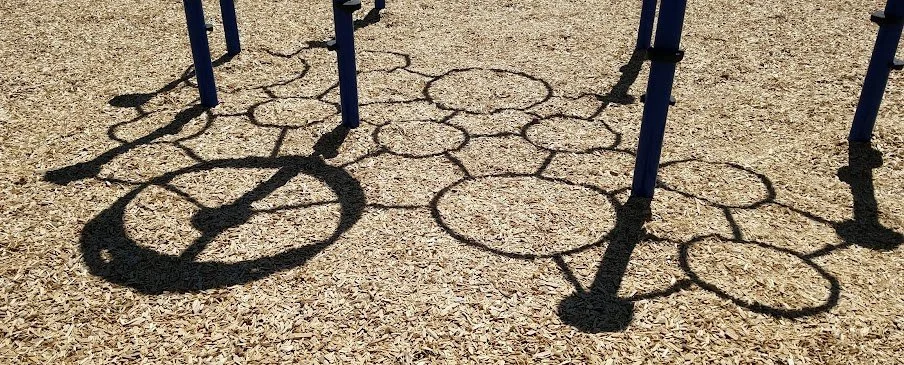Search by topic, theme, or feeling

Beyond the Business Card: Healing Identity After Job Loss
When a career or job ends, the ground can feel like it is giving way beneath us. Somatic psychology offers a path back to a more authentic self, one grounded not in titles but in the unshakable wisdom of the body.

From Performance to Presence: Reducing Identity Distance Through Social Architecture
This post explores how Herbert Blumer’s theory of symbolic interactionism can guide neurodivergent individuals in reducing identity distance through intentional social and environmental design. It frames authentic expression not as a departure from social rules but as a renegotiation of what those rules should be.

Somatic Practices for Nervous System Resilience in Neurodivergent Adults
Somatic therapy offers a hopeful pathway for neurodivergent individuals to gently expand their nervous system's window of tolerance.

Finding Resilience and Beauty in The Cracked Vessel
Perfectionism is often a brittle fortress of fear, not a pinnacle of excellence. Wabi-Sabi invites us to find safety and beauty in life's imperfections, transforming brittleness into resilience and grace.

The Somatic Cost of Masking In Neurodivergent People
The chronic muscular tension, profound fatigue, and identity fragmentation often experienced by neurodivergent individuals who mask are not separate symptoms but interconnected signs of a body forced to live a prolonged performance.

Sensory Joy as a Pathway Through Trauma
Deliberate attention to simple pleasures rewires the nervous system for safety, building a new somatic narrative where the body is a source of comfort and resilience.

Not All in Your Head: Somatic Approaches to Anxiety
Anxiety is not always a product of “overthinking”; it is often a legitimate response to tangible external pressures. By integrating somatic strategies that honor this reality, we can build resilience without dismissing the very real stressors that shape our lived experience.

How Alcohol Disrupts Your Body's Master Regulatory System
Alcohol artificially manipulates the brain's endocannabinoid system, depleting its natural regulators like anandamide and 2-AG over time.

Finding Your Voice: Self Advocacy for Neurodivergent Individuals
For neurodivergent individuals, self advocacy often requires translating fundamental needs into a foreign language of social norms.

Building Your Inner Witness: Neuroinclusive Pathways to Awareness
Cultivating an internal witness is a vital skill for mental wellbeing, accessible to all neurotypes through tailored pathways.

Neurodivergent neuroception and building a personal safety inventory
For neurodivergent individuals, the subconscious process of neuroception, which scans for safety, can be uniquely sensitive, impacting social energy and daily life. This post explores how a personalized safety inventory and dedicated rest can help regulate the nervous system and foster well-being.

A Personal Sensory Profile: Exteroception, Sensitivity, and the Neurodivergent Experience
For many neurodivergent individuals, exteroception, or the perception of the external sensory world, is a primary source of overwhelm and exhaustion.

Mapping the Inner World: Interoceptive Awareness for Neurodivergent Wellbeing
For many neurodivergent individuals, decoding the body's internal signals can be a profound challenge.

The Body in Space: Understanding Proprioceptive Differences in Neurodivergent Experience
Proprioception, our body's internal GPS, often functions differently for neurodivergent individuals, leading to a disconnect from physical self-awareness.

Feeling Erased: Reclaiming Presence After Trauma
Trauma can create a profound and haunting sense of being erased, as if one's inner reality has been rendered invisible.

Understanding and Supporting Neurodivergent Sensory Experiences
Sensory sensitivities are a core, valid experience for many neurodivergent individuals. By understanding and implementing personalized mitigation strategies, we can foster safety and reduce the harm caused by chronic overstimulation.

A Somatic Perspective on Neurodiverse Relationship Equity
True fairness in a neurodiverse relationship moves beyond equal division to equitable support, meeting each partner's unique neurological needs to foster a shared sense of safety and fulfillment.

The Complex Intersection of Neurodivergent Minds and Self Harm
Self harm ideation in neurodivergent individuals often represents a nervous system's survival response to overwhelming distress, not a symptom of brokenness.

Reclaiming the Inner Voice: CPTSD and Negative Self-Talk in Neurodivergent Individuals
For neurodivergent individuals with CPTSD, negative self-concepts are often trauma responses forged in a world of chronic mismatch. Healing involves gentle practices that address both the ingrained neural pathways of criticism and the specific context of neurodivergent experience.

The Transformative Power of a Late Neurodivergence Discovery
A later-in-life neurodivergence diagnosis can provide the essential framework to rebuild.
